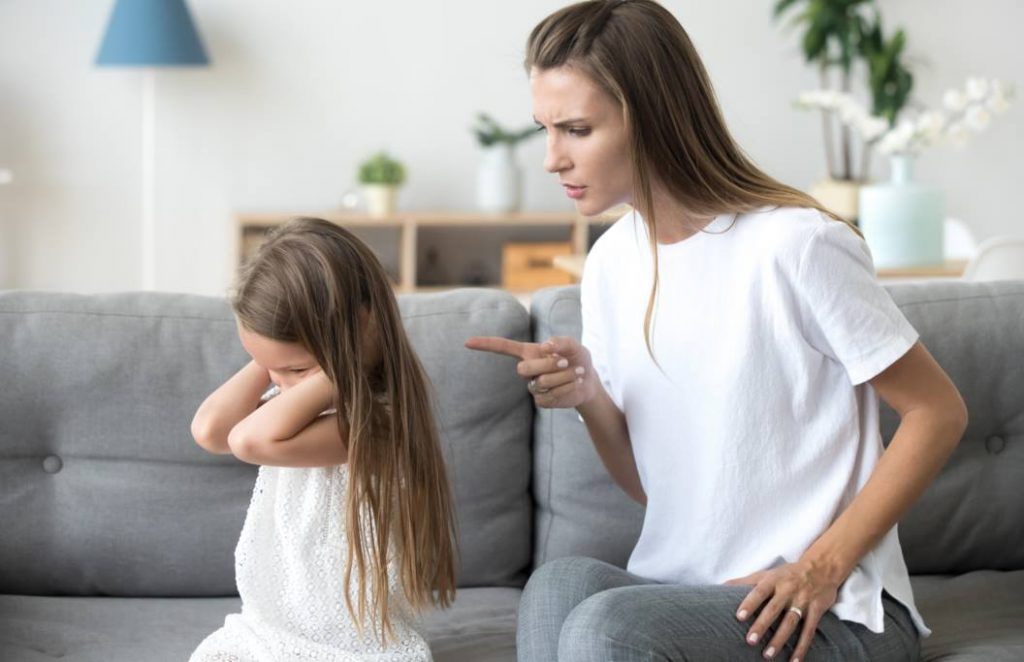
There are many healthy and positive ways to discipline your child and teach them valuable life lessons. In addition to physical punishment like spanking, another disciplinary strategy you should always avoid is saying hurtful things to your kid. Some remarks can damage the parent-child bond and leave permanent scars on your child’s confidence. While it may demand patience and commitment, it is essential to avoid using the following seven phrases on your little one.
This is the go-to phrase parents use when they want to assert their authority, but it's best to steer clear of it. It may sound powerful, but it actually strips away your kids' control. There are situations where parents cannot explain their demands or advice, but it's worth trying to provide them with a clearer understanding of why you're asking or forbidding them to do particular things.
When parents tell their children to stop crying, it can make them feel like expressing their emotions is a sign of weakness. Although a crying child can sometimes be a frustrating sight for parents, it's important not to make your child feel like they're doing something wrong by crying. By asking them gently about the reason why they're crying, you can validate their feelings and encourage open communication. This approach will help your child feel more comfortable sharing their feelings and discussing any problems they may have in the future.
When parents tell boys they cannot engage in activities traditionally associated with girls, such as playing with dolls or expressing emotions, they may internalize the message that vulnerability and nurturing qualities are not masculine. Similarly, discouraging girls from participating in sports or pursuing careers in STEM fields can convey a message that strength and ambition are not feminine. Parents should avoid confining their kids to narrow gender roles and reinforcing gender stereotypes.
Parents indeed make significant financial and emotional sacrifices for their children, but constantly reminding them of it can actually make them feel like a burden instead of feeling loved. While many parents feel the need to remind their kids of how much they do for them, it can come across as quite hostile. Instead, if your kid is being ungrateful, gently remind them that you do things for them because you love them without sounding condescending.
Disappointment is a valid emotion and an inevitable part of parenting, but this phrase can leave a lasting impact on your kid. Unfortunately, many people grow up with the feeling that they have disappointed their loved ones simply because they heard this from their parents in their childhood. Therefore, it's better to have a calm conversation with your child, expressing your dissatisfaction about a specific action and kindly requesting them not to repeat it in the future.
Comparing your child to others can create a sense of competition and pressure to measure up to someone else's standards. This can lead to feelings of inadequacy and low self-esteem, as your child may feel like they are not meeting your expectations or the expectations of others. Furthermore, constantly comparing your child to others can also lead to feelings of jealousy. It is important to remember that every child is unique and has their own strengths and weaknesses.
It's important to avoid making negative comments about your child's weight as it can lead them to become overly self-conscious about their bodies and develop an unhealthy relationship with food. Body image is a sensitive and personal matter, and exposing them to such criticism at a young age can be harmful. Instead, it's better to encourage your child to make healthy food choices for the sake of their well-being.
Kids absorb everything they see and hear at home, making their parents their primary source of learning. As parents, it is crucial to question our influence on children’s psyche instead of blaming them for every issue in their upbringing. It is crucial to protect children’s innocence and dignity at the same time, allowing them to enjoy a carefree childhood that will allow them to grow into confident individuals.